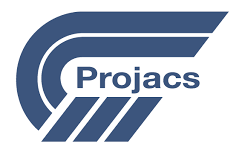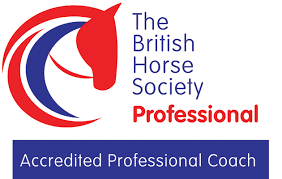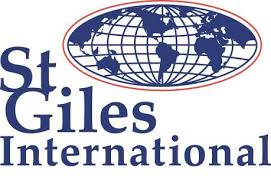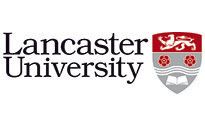ESHub

Le programme officiel de certification des compétences en construction (CSCS)
ID du cours : 2501050108809ESH
Dates du cours : 05/01/25 Durée du cours : 1 Jour(s) d'étude Lieu du cours : Londres, Royaume-Uni
Catégorie de cours : Programmes uniques
Sous-catégories de cours :
Éducation et développement professionnel Santé, sécurité et bien-être Leadership et gestion Durabilité et pratiques environnementales Sécurité de la construction Durabilité environnementale Santé et bien-être Leadership et communication Assurance qualité Gestion des risques Développement des compétences techniques
Informations sur le cours
Introduction
Notre formation est conçue comme une formation intensive d'une journée. Vous y apprendrez les notions de santé et de sécurité dans le secteur de la construction nécessaires à la réussite de votre formation. À l'issue de la formation, vous passerez un test en ligne qui évaluera vos connaissances acquises au cours de la journée.
Objectifs
Après avoir réussi votre test, vous recevrez la confirmation de votre carte CSCS. Vous recevrez ensuite une confirmation de vos résultats et de votre carte CSCS. Votre carte CSCS originale et votre certificat vous parviendront sous 10 jours ouvrés.
À qui s'adresse cette formation ?
Toute personne souhaitant travailler sur des chantiers de construction Toute personne souhaitant postuler à un emploi dans le secteur de la construction Toute personne souhaitant accéder à un chantier de construction au Royaume-Uni (obligatoire)
Méthode de formation
• Pré-évaluation • Enseignement en groupe en direct • Utilisation d'exemples concrets, d'études de cas et d'exercices • Participation et discussion interactives • Présentation PowerPoint, écran LCD et tableau à feuilles mobiles • Activités et tests de groupe • Post-évaluation
Soutien au programme
Ce programme est soutenu par : * Des discussions interactives * Des jeux de rôle * Des études de cas et met en évidence les techniques à la disposition des participants.
Agenda quotidien
Agenda du matin : * 9h00-9h30 (pré-évaluation, compléter le registre et présence) * 9h30-11h30 (session technique) * 11h30-11h45 (pause-café) * 11h45-12h45 (session technique) * 12h45-13h00 (pause de révision) * 13h00-14h00 (test CSCS) Aganda de l'après-midi : * 14h30-15h00 (pré-évaluation, compléter le registre et présence) * 15h00-18h30 (session technique) * 18h30-18h45 (pause-café) * 18h45-19h45 (session technique) * 19h45-20h00 (pause de révision) * 20h00-21h00 (CSCS (Test)
Plans de cours
Introduction to Building Rehabilitation and Repair
Overview of Building Rehabilitation: Definitions, scope, and significance of rehabilitation and repair in modern construction.
Building Assessment Techniques: Methods for evaluating the condition of structures, including visual inspections, non-destructive testing, and diagnostic tools.
Fundamentals of Repair Management: Understanding the repair process, from identification of issues to execution.
Compliance and Legal Requirements: Overview of regulations governing building rehabilitation, including codes, standards, and environmental guidelines.
Day 2:
Strategic Planning for Rehabilitation Projects
Developing a Rehabilitation Plan: Key elements of a successful strategy for planning rehabilitation projects.
Risk Management in Building Rehabilitation: Identifying and mitigating potential risks in repair and rehabilitation projects.
Material Selection and Repair Techniques: Exploring appropriate materials and methods for different types of repairs.
Sustainability Considerations: Incorporating energy efficiency, sustainability, and green technologies in rehabilitation strategies.
Day 3:
Heritage and Historical Building Rehabilitation
Challenges in Heritage Preservation: Special considerations in rehabilitating heritage and historical buildings.
Balancing Modernization and Preservation: Techniques for integrating contemporary systems while preserving historical elements.
Case Studies of Successful Heritage Projects: Real-world examples of effective heritage rehabilitation and repair.
Cultural and Legal Constraints in Heritage Projects: Navigating cultural sensitivities and legal frameworks when working with historic properties.
Day 4:
Project Management in Rehabilitation and Repair
Managing Rehabilitation Projects: Practical aspects of managing repair projects, including budgeting, scheduling, and stakeholder coordination.
Quality Control and Assurance: Ensuring repairs meet industry standards and regulatory requirements.
Addressing Challenges in Complex Projects: Managing unforeseen issues and complexities in large-scale rehabilitation projects.
Technology in Repair Management: Leveraging modern technologies such as BIM (Building Information Modeling) for improved project management and efficiency.
Day 5:
Advanced Practices and Future Trends in Rehabilitation
Innovations in Repair and Rehabilitation: Exploring emerging trends and technologies, including advanced materials and automated repair solutions.
Circular Economy in Building Rehabilitation: The role of the circular economy in extending the lifespan of buildings and reducing waste.
Planning for Long-Term Maintenance: Developing strategies for ongoing maintenance and future-proofing buildings after rehabilitation.
Final Case Study Review and Discussion: A comprehensive discussion of case studies, highlighting the application of learned concepts and best practices.
Semaine 02
Semaine 02
Semaine 03
Semaine 03
Semaine 04
Semaine 04
Semaine 05
Semaine 05
Semaine 06
Semaine 06
Semaine 07
Semaine 07
Semaine 08
Semaine 08
Semaine 09
Semaine 09
Frais de cours : 500,00 £
TVA non incluse dans le prix.
La TVA peut varier selon le pays où se déroule le cours ou l'atelier.
Cliquez pour payer
Payez pour réserver votre place






















































